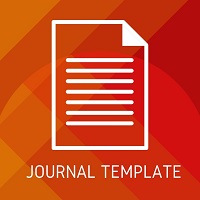THE SETTLEMENT OF TWO CONTRADICT RECONSIDERATION VERDICTS IN DIFFERENT CHAMBERS (CASE STUDY OF COURT’S VERDICT NUMBER 162 PK/TUN/2015 AND 1053/PDT/2019)
CASE STUDY OF COURT’S VERDICT NUMBER 162 PK/TUN/2015 AND 1053/PDT/2019
DOI:
https://doi.org/10.37253/jlpt.v7i1.6744Keywords:
Reconsideration Verdict, Sentence's Dispute Between Two Chambers, Mining Business Permit AreaAbstract
Judicial review might be submitted by the parties as a form of objection to the judge's decision which has permanent legal force. In practice, it is possible for an object of dispute to be filed in two chambers of courts that cause two sentences with permanent legal force contradict each other as in between case Number 162 PK/TUN/2015 and 1053/PDT/2019. The two cases decide which party has the right to manage a mining business permit area, but when the two decisions are about to be executed, the two Mining Business Permit Areas between PT Pasir Prima Coal Indonesia (PT PPCI) and PT Mandiri Sejahtera Energindo Indonesia (PT MSEI) will still overlap. This paper uses a normative empirical research method with a judicial case study approach, which its normative research based on the provisions of the applicable laws and regulations is carried out in parallel by dissecting several related court decisions. The legal materials used in this study are in the form of books containing the opinions of legal practitioners and academics, legislations, and of course the court's decisions. In their considerations, the Panel of Judges in the general court room focuses on seeking material truth, and the Panel of Judges in the state administrative court looks at the administrative process in the issuance of a state administrative decision. The Chief Justice of the Supreme Court through his letter explained that the case could go through a second review where the composition of the panel of judges consisted of the chairman of the Supreme Court, the Supreme Court justices from civil chamber, and the Supreme Court justices from the state administrative law chamber, as stated in the Supreme Court Circular Number 5 of 2014 and Circular Letter of the Supreme Court Number 4 of 2016.
Downloads
Downloads
Published
Issue
Section
License
Program Magister Hukum Universitas Internasional Batam









1.jpg)

1.png)




1.png)
2.png)
.png)
2.jpg)


